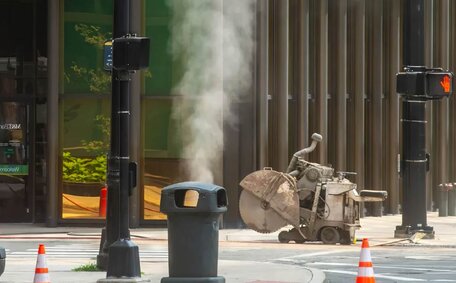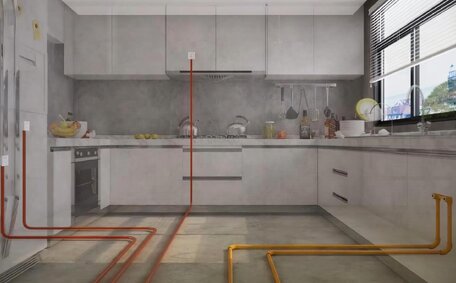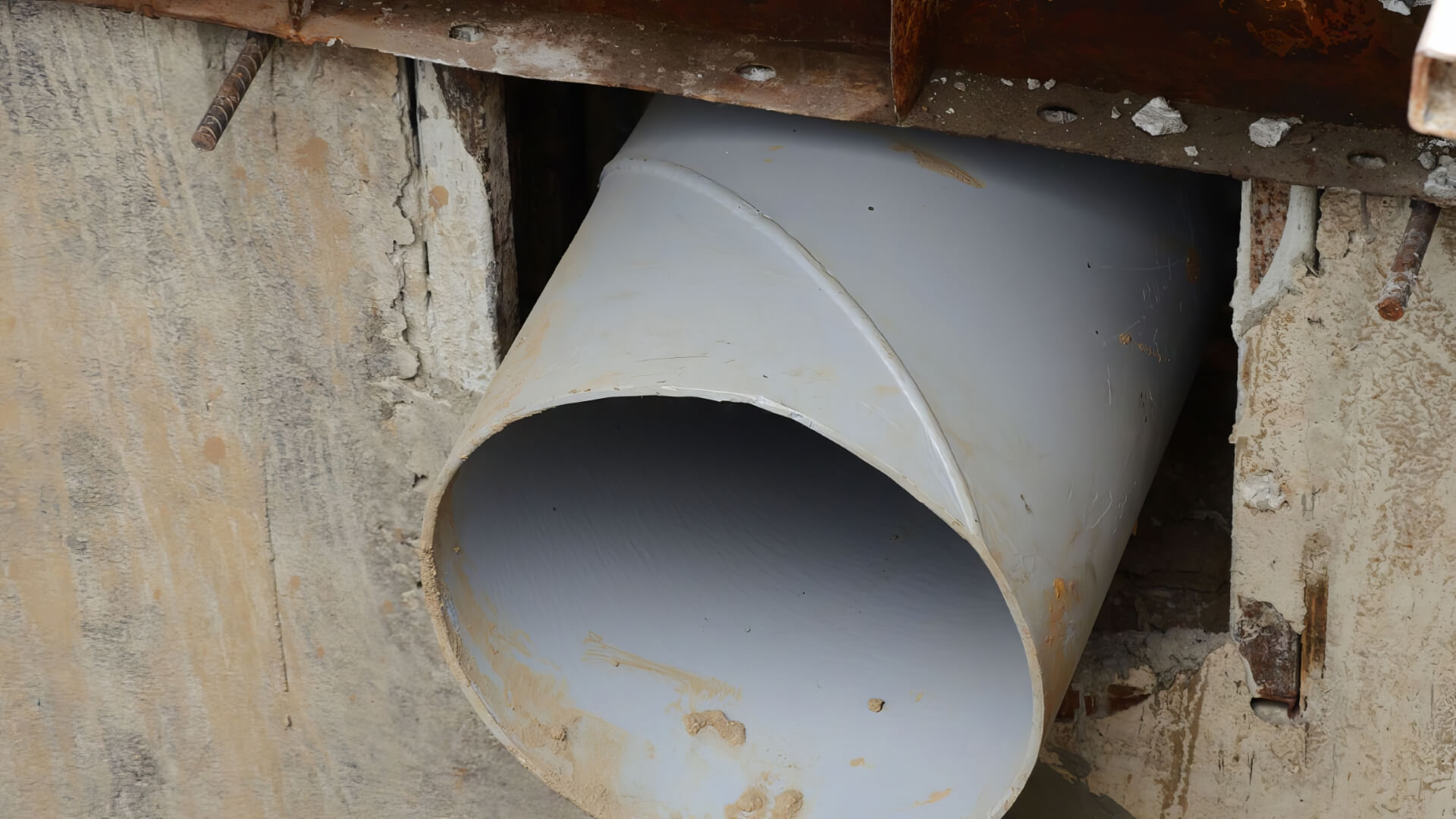Introduction to Natural Gas and its Uses
Extracted from deep underground, natural gas serves as a crucial energy source for heating and cooking. It’s mostly comprised of methane, making natural gas used in homes, businesses, and industry, the cleanest-burning fossil fuel, producing fewer emissions than other fossil fuels like coal or oil when burned.
Endorsed by the gas association and other leading organisations, in homes, you can use natural gas primarily for heating spaces and water, as well as for cooking and heating appliances such as stoves, ovens, and outdoor grills. Utility companies rigorously monitor the safe delivery of natural gas into buildings. When burning natural gas to generate electricity, it can also power vehicles in certain cases.
As a cleaner energy source, natural gas provides numerous advantages over its counterparts. This your energy source produces more than 45% less carbon dioxide, contributing less to air pollution than coal and 30% less than oil or gasoline when burned. Natural gas can play a role in the transition towards renewable energy, helping to mitigate climate change.
How Natural Gas is Delivered and Used in Homes
Homes, like those in Rouse Hill, receive natural gas via underground pipelines from gas fields and processing plants. Contact 'Dial Before You Dig’ services before excavating to safeguard essential utility-maintained gas distribution infrastructure.
Before natural gas fulfils the requirements of homes, it becomes a critical source your gas meter measures for meticulous consumption tracking. A main gas line transfers it into your home, branching off to power devices such as cooktops, water heaters, and dryers.
For safe and efficient gas delivery, verify the absence of underground utilities before any excavation to prevent gas line damage, and ensure all your gas appliances are properly installed and maintained. This is where your skilled gas fitter, like those at Rouse Hill Plumbing, steps in to ensure safety and compliance. Our licensed gas fitters have undertaken extensive training to ensure they can help you identify gas faults and determine if your gas system is set up correctly and operating safely.
Safe usage of natural gas yields multiple advantages for households, including in areas like Rouse Hill. Ensuring the safe use of natural gas for domestic use reaps benefits like energy efficiency and significant cost savings compared to electricity. Integrating energy safe natural gas usage into your smart home infrastructure also provides effective heating and hot water on demand.
Discover how modern appliances are designed for safe natural gas use and come with advanced safety features by watching our informational videos.
Businesses can augment their bottom line and prevent leaks by using supplied natural gas and LPG wisely. Gas heating, cooking equipment and hot water can significantly cut energy bills. Rouse Hill Plumbing caters to commercial clients’ gas heaters and LP gas system requirements as well.
Detecting a Gas Leak
Recognising the dangers of natural gas and the signs of a potential leak is crucial. A natural gas leak is invisible and odourless in its pure form, making it difficult to detect without certain measures. Detecting gas leaks relies on safety measures such as adding mercaptan, which gives natural gas a noticeable rotten egg odour.
If you notice a smell akin to rotten eggs, a distinctly strong odour in or around your house, it may indicate a leak. You should also watch out for:
- An unusual hissing, whistling or roaring sound coming from gas appliances or pipes
- Dirt blowing from a hole or crack in the ground
- Bubbles in standing water
- Irregular gas flame emerging from the ground or appearing distinctly blue
Since some gases rise and others sink, inspect both upper and lower areas for signs of escaping gas. Check areas higher up, like attics or eaves, for any accumulation of unburned natural gas. Be alert for discoloured patches or dead vegetation that may indicate an underground gas leak.
If a gas leak is suspected, immediately shut off the gas using the shutoff valve and evacuate the area before contacting your utility provider. Gas safety protocols require you to turn off the main supply from your meter or shutoff valve and to avoid actions that could ignite the gas. After securing your safety by shutting off the gas, contact emergency services.
The Chan School of Public Health affirms that carbon monoxide, resulting from faulty gas combustion, is toxic if inhaled. Installing CO detectors to measure the levels carbon monoxide is an added safety measure, complementing routine inspections for gas leaks.
What to Do if You Suspect a Gas Leak
If you detect the telltale rotten egg smell or any other signs of a potential gas leak, your safety should be the top priority. Follow these steps immediately:
- Avoid activating any electrical switches, using phones, or lighting matches/candles, as these actions could trigger an explosion. Have everyone go outside, away from the potential gas source.
- Move to a safe, upwind outdoor location and call 000 if the gas leak presents imminent danger.
- Contact Rouse Hill Plumbing at 1300 349 338 for gas leak inspection and resolution by our specialists.
- Don’t attempt repairs yourself, as this is extremely dangerous. Leave it to licenced experts like our team.
- If evacuating isn’t feasible, open doors and windows to invite fresh air in and ventilate the property until assistance arrives.
- Install carbon monoxide detectors for extra precaution, alongside regular gas leak checks.
As your trusted local plumbing company, Rouse Hill Plumbing ensures safety natural through impeccable service you can count on. Our skilled gas fitters undergo extensive training and can quickly inspect, find and repair any leaks before further issues arise. So call us immediately in case of a suspected gas leak in Rouse Hill homes or businesses.
Health Risks of Natural Gas Exposure
A leak in your natural gas system can result in poisoning, with severe health impacts, as noted by the scientists at PSE Healthy Energy. The main risks are oxygen deficiency and carbon monoxide poisoning, which gas can severely exacerbate.
Natural gas can displace oxygen when released during heating or cooking, leading to dangerous asphyxia. Prolonged oxygen deprivation from gas poisoning leads to loss of consciousness or even death.
Carbon monoxide, identified as a hazardous air pollutant, is deemed critically dangerous when inhaled by leading authorities from the Chan School of Public Health. When gas appliances malfunction or ventilation is poor, CO can accumulate to toxic levels. According to World Health Organisation data, CO poisoning causes over 50,000 deaths globally each year.
Symptoms of CO poisoning, worsening over time, may include:
- Headaches, dizziness, nausea
- Shortness of breath, chest pain
- Confusion, blurred vision
- Seizures, loss of consciousness
Seek prompt medical help if symptoms of natural gas exposure arise, and become familiar with the appropriate steps to take when you suspect leaks from your natural gas appliances. Install CO detectors too since CO is invisible and odourless.
Other air pollutants, such as nitrogen dioxide exposure from natural gas appliances, alongside volatile organic compounds, have the potential to irritate eyes, skin, and respiratory tracts.
Rouse Hill Plumbing’s licenced technicians should only be trusted to assist with early gas leak detection, proper ventilation, and regular servicing of appliances to minimise health risks.
Using Gas Appliances Safely
Gas appliances like gas stoves, ovens, heaters and hot water systems provide convenient heating and energy in homes when used properly. But knowing what’s safe to do with gas safety tips is vital for managing gas appliances responsibly.
Always adhere strictly to the manufacturer’s instructions while operating any gas appliance. Please select your room’s layout to ensure it is well-ventilated and avoid obstructing vents. Routinely check your appliance connections, pilot lights, valves, and chimneys for any impairments or obstructions that might precipitate incomplete combustion and carbon monoxide leaks.
Have your professional gas fitter service appliances annually. They’ll tune-up the units for optimal efficiency while spotting and fixing dangerous issues like worn seals or damaged parts. This prevents malfunctions down the track.
Take care when using a gas stove; keep flammables at a distance and ensure you switch off the stove knobs after cooking to prevent gas leaks. If the flame is unstable or if you still smell gas, reminiscent of rotten eggs even after appliances are turned off, it’s essential to call Rouse Hill Plumbing for a gas line examination.
As an additional safety layer, install carbon monoxide alarms. And know the signs of CO poisoning like headaches and dizziness so you can ventilate rooms and get prompt medical help if needed. Stay vigilant during gas safety checks by being alert and consulting specialists like Rouse Hill’s licensed technicians.
Importance of Proper Installation and Maintenance
Licensed gasfitters must professionally install and service gas appliances and pipes to ensure safety and optimal function. Rouse Hill Plumbing’s licenced gasfitters have extensive training to ensure gas systems are set up correctly and operating efficiently.
Annual servicing by technicians checks for issues like faulty seals or blocked vents that could lead to gas leaks or carbon monoxide accumulation. Maintenance tunes up appliances for peak function, preventing premature breakdowns.
New gas appliances must be installed per manufacturer specifications. Our specialists first plan appropriate locations meeting ventilation needs, before connecting and testing that gas burns safely. We also deactivate old lines according to regulations when replacing appliances.
For commercial kitchens, regular gas safety checks are a must. Buildup of residue inside pipes or flawed equipment can pose immense risks. Rouse Hill Plumbing assists businesses in staying compliant with gas codes through scheduled inspections and upgrades.
Proper installation and maintenance should be complemented by certifications such as Gas Safe or Carbon Monoxide alarms. Rouse Hill homes and businesses can trust our gasfitters to optimise safety given our extensive licences and experience.
Preventing Carbon Monoxide Poisoning
Carbon monoxide (CO) is an imperceptible and odourless gas, lethal upon inhalation. Taking steps to prevent CO buildup is crucial for health safety.
Confirm that gas appliances are correctly installed with adequate ventilation. Have professionals check annually for issues like cracked heat exchangers that enable CO leaks. Keep vents and chimneys clear of debris, and refrain from using gas ovens for heating, which depletes oxygen.
Place CO alarms near sleeping areas for early detection of gas accumulation.
CO alarms alert users to increasing levels of the gas before it becomes dangerous.
Amid extended power outages, exercise caution with outdoor backup generators or cooking appliances. Don’t operate petrol-powered equipment indoors or too close to air-intakes. Minimising CO accumulation is essential to ensuring safety.
Rouse Hill Plumbing provides early gas leak detection, CO protection, and comprehensive maintenance for residential and commercial properties. Our licenced technicians have specialised training to optimise health safety regarding gas systems. Contact us today with any concerns regarding a potential gas leak your home.






